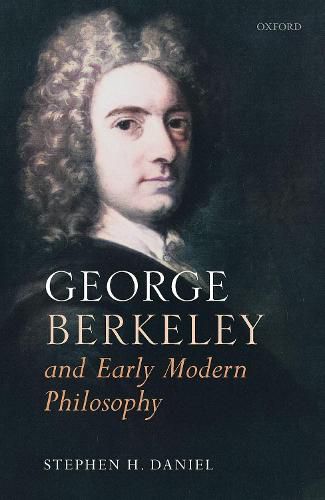Readings Newsletter
Become a Readings Member to make your shopping experience even easier.
Sign in or sign up for free!
You’re not far away from qualifying for FREE standard shipping within Australia
You’ve qualified for FREE standard shipping within Australia
The cart is loading…






Stephen Daniel presents a study of the philosophy of George Berkeley in the intellectual context of his times, with a particular focus on how, for Berkeley, mind is related to its ideas. Daniel does not assume that thinkers like Descartes, Malebranche, or Locke define for Berkeley the context in which he develops his own thought. Instead, he indicates how Berkeley draws on a tradition that informed his early training and that challenges much of the early modern thought with which he is often associated. Specifically, this book indicates how Berkeley’s distinctive treatment of mind (as the activity whereby objects are differentiated and related to one another) highlights how mind neither precedes the existence of objects nor exists independently of them. This distinctive way of understanding the relation of mind and objects allows Berkeley to appropriate ideas from his contemporaries in ways that transform the issues with which he is engaged. The resulting insights–for example, about how God creates the minds that perceive objects–are only now starting to be fully appreciated.
$9.00 standard shipping within Australia
FREE standard shipping within Australia for orders over $100.00
Express & International shipping calculated at checkout
Stephen Daniel presents a study of the philosophy of George Berkeley in the intellectual context of his times, with a particular focus on how, for Berkeley, mind is related to its ideas. Daniel does not assume that thinkers like Descartes, Malebranche, or Locke define for Berkeley the context in which he develops his own thought. Instead, he indicates how Berkeley draws on a tradition that informed his early training and that challenges much of the early modern thought with which he is often associated. Specifically, this book indicates how Berkeley’s distinctive treatment of mind (as the activity whereby objects are differentiated and related to one another) highlights how mind neither precedes the existence of objects nor exists independently of them. This distinctive way of understanding the relation of mind and objects allows Berkeley to appropriate ideas from his contemporaries in ways that transform the issues with which he is engaged. The resulting insights–for example, about how God creates the minds that perceive objects–are only now starting to be fully appreciated.